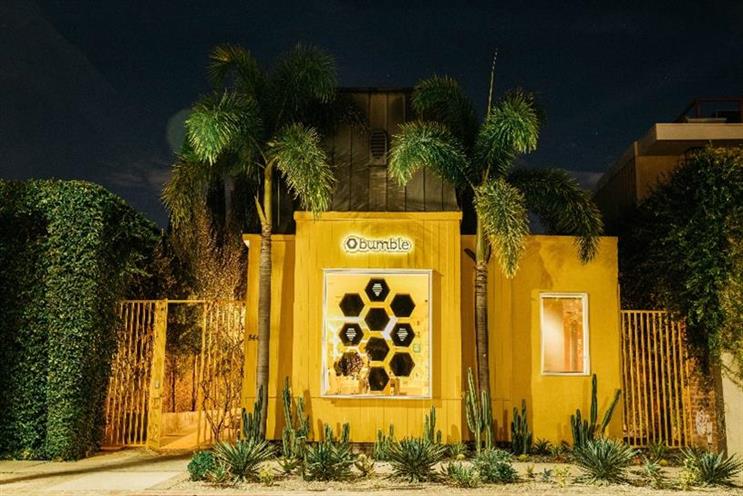
Whitney Wolfe Herd, the founder and chief executive of Bumble, said at Cannes Lions on Monday (18 June) that the app was "not yet" seeking advertisers but was at the festival to explore the possibility.
For now, Bumble operates on a subscription model and forms strategic partnerships with brands, but it declines "95% of brand partners," Wolfe Herd said.
That is because a brand must "walk the walk instead of just putting something on a billboard," she explained. "It has to stand for kindness and serve some mission in the world."
To understand Bumble’s prerequisites for brand partners, it helps to know the founder’s story. Wolfe Herd was previously a co-founder and head of marketing at Tinder, which she later sued for sexual harassment. After filing the lawsuit she was the victim of online harassment so severe she "wasn’t sure [she] wanted to live anymore," Wolfe Herd recalled.
That experience inspired her to "recalibrate the way people treated each other online," she said. Wolfe Herd did not initially intend to start another dating app but rather a social network for young girls that was based on positivity.
After being approached by Andrey Andreev, the founder of social network Badoo, she decided to get back into the dating game and create "an antidote to everything I went through". Bumble, an app where women must make the first move, launched in 2014.
Wolfe Herd advised other entrepreneurs to try to solve things that they hate: "What breaks your soul in half? Find that and go and fix it." For her, Bumble was a solution to the broken system of dating where women were often left feeling disempowered.
Bumble now expects to sign on more than 40 million users by the end of the year, and it adds about one million users per week, Wolfe Herd said. It has also expanded beyond dating with Bumble BFF and Bumble Bizz, which helps people find friendships and business opportunities. "Dating is not exclusive to love," she said.
Wolfe Herd believes a "lack of accountability" online is creating an aggressive and unsafe environment for many people. Bumble wants to rectify that, and it has built-in features to block users who are abusive. "We will have your back if something goes wrong," she said.
Tech platforms have become their "own systems of governance" and must be held accountable, Wolfe Herd said. But taking a stand on its values has sometimes proven controversial, such as when Bumble banned photos of users with guns. In Austin, Texas, where the app is headquartered, the company had to bring in extra security to deal with gun advocates who protested that decision.
Bumble has also had to fire employees or split with brands that did not meet its standards for kindness, Wolfe Herd said. But if a brand stays true to its values, "in the long run you’ll win," she said.
"Anyone can rip off a product," she said. "Brands and authenticity are the only magic which can’t be copied."
In many ways her advice for building a brand is the same as her dating advice to the app’s users: "Be explicit in what you’re looking for, and that’s what you’ll get back."




.jpg)
.jpeg)
